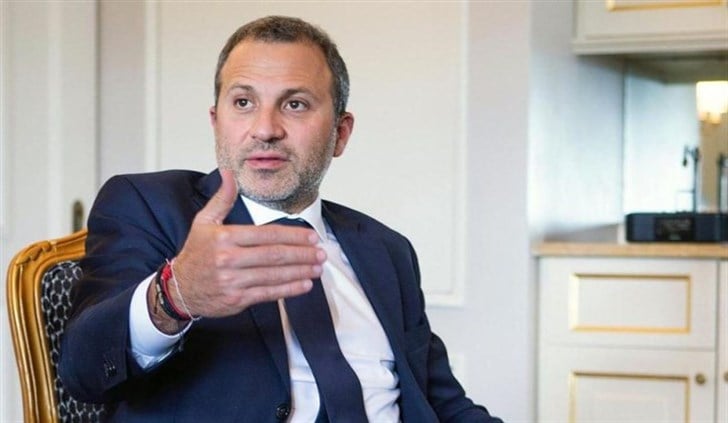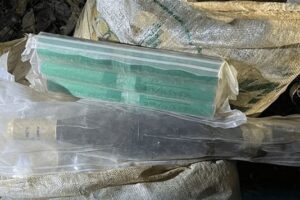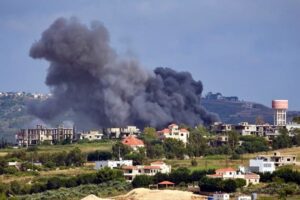The head of the Free Patriotic Movement (FPM), MP Gebran Bassil, commented on the results of the municipal elections in Mount Lebanon, emphasizing that the FPM’s success was the result of collaborative efforts with both the people and its allies. He underlined that the Movement had no intention of claiming exclusive credit but demonstrated it could serve as a central force in the electoral process, working hand in hand with local communities.
“We are pleased that the presidency and the government were able to conduct the municipal elections on time,” he said, noting that the FPM had participated in all six districts of the Mount Lebanon governorate.
“From the outset, we stressed that these elections were primarily about families, development, and municipal governance — while acknowledging the inevitable political dimension. That’s why we backed family-based lists and fully respected their choices. At the same time, we highlighted the displacement issue as a core political concern, and we supported municipal programs accordingly. We also reaffirmed our commitment to broader administrative decentralization,” Bassil stated during a press conference held alongside the FPM’s electoral team to present the election results.
“To empower families in making their own decisions, we offered two pathways: either we reached consensus, which we successfully did in many areas, or we supported specific lists and individual candidates. When we speak of victory, it’s not just ours — it’s a victory shared with the families. This win belongs to the people, not just the FPM,” he added.
Bassil acknowledged that the FPM provided political guidance to voters in certain areas, which in turn influenced family-based choices. “No one can deny the significant role we played or the impact we had,” he said.
He highlighted the slogan “Mina wa Fina” (“From the People, For the People”), emphasizing that municipalities are rooted in the people’s choices. “We take pride in this outcome because families embraced our candidates willingly — often without us even asking. It’s a genuine victory, one that reflects popular trust.”
Bassil further noted that the 2025 municipal elections showcased the FPM’s widespread presence in Mount Lebanon and marked an improvement over previous elections. “This proves that the FPM continues to be a dominant political and grassroots force in the region.”
FPM Vice President for Political Affairs, Martin Najm, presented a breakdown of the results:
• Jbeil: FPM present in 27 out of 31 municipalities (87% coverage), securing 74 municipal council members (25%) and 26 mayors (28.5%).
• Keserwan-Jbeil: Present in 44 of 54 municipalities (82%), winning 162 council members (29%) and 33 mayors (31.5%).
• Metn: Present in 45 of 55 municipalities (82%), with 149 council members (23%) and 46 mayors (27%).
• Baabda: Present in 31 of 32 municipalities (97%), with 102 council members (23%) and 20 mayors (28%).
• Aley: Present in 21 of 30 municipalities (70%), with 99 council members (25%) and 21 mayors (39.6%).
• Chouf: Present in 33 of 35 municipalities (94%), securing 53 council members (15%) and 13 mayors (21.3%).
In total, the FPM was present in 201 out of 236 municipalities (85%), electing 639 municipal council members (23.5%) and 159 mayors.
Bassil reiterated these figures, pointing out that 639 FPM-supported candidates won out of 2,714 total seats. He noted that this performance significantly builds on the party’s previous record, such as winning 103 mayoral seats nationwide in 2016.
Touching on specific regional dynamics, Bassil emphasized the strategic importance of the Jbeil Union of Municipalities, where the FPM successfully backed Fadi Martinos, and the Metn Union of Municipalities, where coordination with the El Murr family helped secure victory and advance a long-term development vision.
In Keserwan, however, plans were disrupted when Juan Hobeich unexpectedly withdrew, complicating the electoral strategy.
Bassil raised concerns about the lack of attention given to towns like Hadath, Kahale, and Deir el Qamar, despite the predictable outcomes in larger cities like Jbeil, Jounieh, and Jdeideh. “In Jounieh, we aimed for consensus. But with five opposing forces, we still garnered 3,000 votes — a notable result,” he said. Even in areas where the FPM didn’t achieve victory, he insisted, the groundwork was laid for long-term municipal involvement with an eye toward 2030.
Looking ahead to 2026, Bassil expressed confidence that the impact of these strategies will become even more evident to voters and political observers.
He concluded by highlighting the FPM’s wins in towns previously considered strongholds of rival parties and figures. He emphasized the vital role political parties play in society and denounced attempts to demonize them as “completely unacceptable.”




